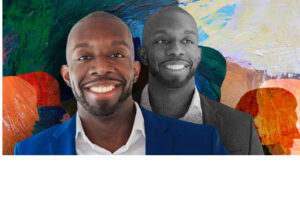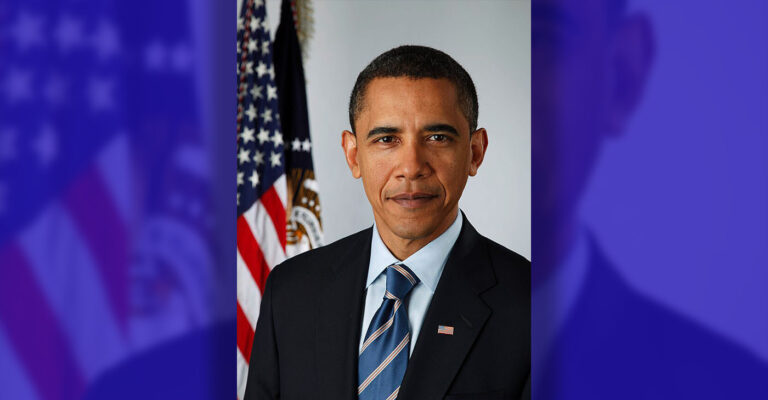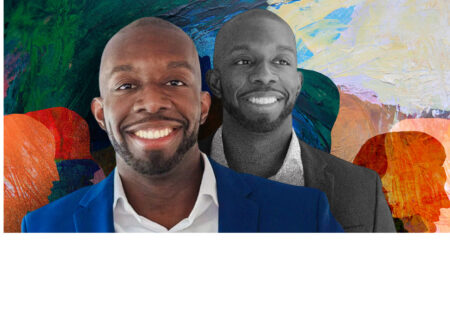By Stacy M. Brown
Black Press USA Senior National Correspondent
Former President Barack Obama has stepped back into the political arena, delivering some of his sharpest critiques yet of President Donald Trump as the Democratic Party struggles through one of its weakest moments in modern history. With the party’s leadership approval at historic lows and its ties to Black-owned media nearly nonexistent, Obama’s renewed visibility has exposed both the vacuum and the disillusionment threatening to fracture the Democratic coalition.
In recent weeks, Obama has spoken out against Trump’s authoritarian-style intimidation of universities and the administration’s crackdown on the press, declaring that America must “resist being intimidated” and warning that protecting democratic values may require “sacrifice.” At Hamilton College, he admonished Trump’s White House for suspending security clearances and canceling contracts with law firms and schools tied to perceived political rivals. “That kind of behavior is contrary to the basic compact we have as Americans,” Obama said. “Imagine if I had done any of this.” Days later, he took to social media to denounce media companies for capitulating to Trump’s threats. “After years of complaining about cancel culture, the current administration has taken it to a new and dangerous level,” Obama wrote, urging journalists and networks to “get a spine” and stand up for free speech.
Late in September at London’s O2 Arena, Obama expanded his message beyond immediate politics, telling a packed crowd that true leadership means constant vigilance and the courage to “show up and speak out even when it’s uncomfortable.” He cautioned against complacency, arguing that progressives had grown “smug” and unprepared for the rise of authoritarianism. “True democracy is a project much bigger than any one of us,” he said. “It’s a job for all of us.” Obama’s renewed activism comes at a time when his party’s base has grown increasingly restless. A Pew Research survey found that 59 percent of Democrats disapprove of their party’s leadership—the highest level of dissatisfaction since the question was first asked more than a decade ago. Senate Minority Leader Chuck Schumer’s approval among Democrats has collapsed to 35 percent, while House Minority Leader Hakeem Jeffries remains little known to nearly four in ten Democratic voters.
That lack of visibility and engagement has been felt most acutely within the Black community. At the Black Press of America’s annual Leadership Awards, where Jeffries and Congressional Black Caucus Chair Yvette Clarke were to be honored, anticipation filled a packed ballroom. But neither showed up.
Civil rights attorney Ben Crump had just pledged $50,000 to support the struggling Black Press, urging others to follow suit. “Typical of Democrats,” one attendee said afterward. “They don’t spend money with us. They don’t show up. And then they expect us to deliver their message for free.” The snub, just 18 months before the Black Press’s bicentennial, struck a nerve among publishers who have covered every chapter of America’s freedom struggle—from emancipation to civil rights—without the financial support they deserve. “Our ancestors built this press through every trial in this country,” said one Black publisher after the event. “The least Hakeem Jeffries could do was show up.”
Obama’s reemergence has not gone unnoticed by voters—or by Trump. During a recent Navy celebration in Virginia, Trump attempted to incite the crowd to boo Obama, but the attempt backfired. As he invoked “Barack Hussein Obama,” the crowd met him with dead silence. Meanwhile, polls show that Obama remains the most admired living president. A Marquette Law School survey found Obama with a +17 net favorability, compared with Trump’s -15 and Joe Biden’s -24. Even so, Obama’s return to the spotlight underscores a sobering truth: the Democratic Party, battered by infighting and a failure to connect with its own base, still lacks a clear, trusted voice. Obama’s critiques of Trump’s policies—whether over healthcare rollbacks or media suppression—stand in contrast to the muted response from current Democratic leaders, who have failed to mobilize voters around issues that once defined their moral compass.
Trump’s efforts to dismantle the Affordable Care Act have revived Obama’s signature policy as the centerpiece of a national political showdown. Democrats, scrambling to extend ACA subsidies that prevent premiums from skyrocketing, have tried to make healthcare their rallying cry again—but without strong, unified leadership, the message has struggled to resonate. For all his measured tone, Obama’s message has sharpened into something closer to alarm. He warns that complacency, even within his own party, has opened the door to authoritarianism. “Progressives assumed our trajectory would bend inevitably toward progress,” he told the audience at the O2. “That complacency left us unprepared.” As Trump wields federal power to punish dissent, the former president’s words carry the weight of both warning and legacy. But even as Obama reasserts his influence, the party he once led remains uncertain and divided—still ignoring the independent Black media that carried it through generations, and still searching for leadership that matches the gravity of this moment. Obama may have left office eight years ago, but in 2025, he appears to be the last Democrat still leading.







